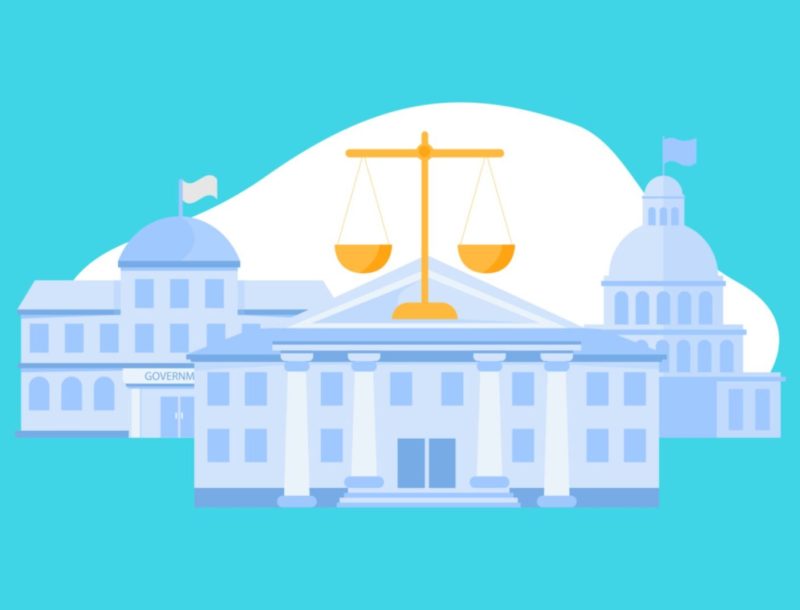What is Consumer Protection? What Financial Institutions Should Know

What is Consumer Protection?
Consumer protection is the safeguarding of individuals from unfair, deceptive, abusive, or fraudulent business practices.
For the financial services industry in the U.S., consumer protection is carried out by a number of regulatory agencies, including the Consumer Financial Protection Bureau (CFPB), the Federal Trade Commission (FTC), and state & local regulatory agencies. These agencies aim to stop harmful business practices by collecting complaints from consumers and conducting investigations. The results of these investigations develop into rules that strive to maintain a fair marketplace while educating consumers and businesses about their rights and responsibilities.
Developments in Consumer Protection
Consumer Financial Protection Bureau (CFPB)
The Consumer Financial Protection Bureau was created out of the 2008 financial crisis to address the failures of consumer protection. In 2010, the Dodd-Frank Wall Street Reform and Consumer Protection Act was signed into law and the “CFPB” was created to consolidate financial consumer protection that previously was scattered across seven different federal agencies. On July 21, 2011, the CFPB officially opened as an independent agency, with the most current director, Rohit Chopra appointed in late September 2021.
The CFPB works to empower, enforce, and educate consumers to provide a single point of accountability for Federal consumer financial law and ensure that markets for consumer financial products are fair, transparent, and competitive.
The core functions that the CFPB works to uphold are:
- Rooting out unfair, deceptive, or abusive acts or practices (UDAAP) by writing rules, supervising companies, and enforcing the law
- Enforcing laws that outlaw discrimination in consumer finance
- Taking consumer complaints
- Enhancing financial education
- Researching the consumer experience of using financial products
- Monitoring financial markets for new risks to consumers
The Federal Trade Commission (FTC)
The Federal Trade Commission was established on September 26, 1914, when the Federal Trade Commission Act was signed into law by President Woodrow Wilson. The mission of “the Commission” is to protect consumers and promote competition. The current Chair of the FTC is Lina M. Khan, sworn in mid-June 2021.
Under the FTC is the Bureau of Consumer Protection whose sole purpose is to stop unfair, deceptive, and fraudulent business practices by:
- Collecting reports from consumers and conducting investigations
- Suing companies and individuals that break the law
- Developing rules to maintain a fair marketplace
- Educating consumers and businesses about their rights and responsibilities
The FTC issues civil penalties that help deter conduct that harms consumers. As these penalties exceed the amount the wrongdoers earned through the misconduct, the FTC is able to send a clear message that preying on consumers will not be tolerated.
The practice of sending out notices started in 1976 but was stopped in the early ’80s to focus the Commission’s efforts on fraud. In October of 2020, Chopra, then-Commissioner of the FTC, and Levine, then-Attorney Advisor to Commissioner Chopra, called for a reinvigoration of the Penalty Offense Authority. Under this authority, “the Commission can substantially increase deterrence and reduce litigation risk by noticing whole industries of Penalty Offenses, exposing violators to significant civil penalties, while helping to ensure fairness for honest firms.” Chopra and Levine explained that the authority would “dramatically improve the FTC’s effectiveness relative to our current approach, which relies almost entirely on Section 13(b) and no-money cease-and-desist orders, even in cases of blatant lawbreaking.”
Since then, the FTC has recently issued three Notices of Penalty Offenses regarding deceptive or unfair conduct that could potentially harm consumers. The Commission seeks penalties if they can prove the conduct was deceptive in violation of the FTC Act Section 5 and a written decision that the conduct was deceptive or unfair has been issued from the FTC.
The Difference Between the FTC’s Bureau of Consumer Protection and the Consumer Financial Protection Bureau
The FTC’s Bureau of Consumer Protection and the CFPB are two different agencies but have similar missions.
The CFPB’s purpose is to ensure that all consumers have access to markets for financial products and services and that the markets for these are fair, transparent, and competitive. The CFPB is the agency primarily responsible for overseeing the financial services industry.
The FTC’s Bureau of Consumer Protection, on the other hand, exercises its authority under the FTC Act and other laws to prevent business practices that are anticompetitive, deceptive, or unfair to consumers, and to enhance informed consumer choice and public understanding of the competitive process. The FTC’s jurisdiction in the financial marketplace extends to financial products and services offered or provided to consumers by persons other than banks, thrifts, federal credit unions, bona fide non-profit organizations.
The Challenges of Ensuring Consumer Protection
Online Endorsements and Testimonials
As the choices for goods and services have increased for the consumer, so has the amount of information available. With endorsements and testimonials from previous users, third-party retail sites, and paid endorsers, it’s important for companies to ensure that their messages and reviews of their offerings do not contain any deceptive or unfair endorsements.
Companies can get ahead of non-compliant practices by having written policies and procedures on how to solicit and promote user reviews, how to confirm the reviewer is a user, and periodically confirm this status, determining if a material connection disclosure is necessary, and having the standardized language in place for when those disclosures are needed.
New Innovations and Products
New innovations in the financial services marketplace (such as Buy Now, Pay Later, for example) allow for increased flexibility for the consumer and can provide access to those who may not have entry to traditional banking and financial services products. The issue with these innovations is that many have minimal regulation, if any at all, which leaves consumers exposed to risk. Financial services companies must ensure that they’re proactively protecting consumers from any harm.
Ever Changing Regulations
Now more than ever, it feels like new regulations are emerging from everywhere, and existing ones are constantly changing and evolving-and that’s because they are. From both a federal and state level, keeping up-to-date on the latest regulatory obligations can be a challenge.
While the full list of consumer protection regulations is extensive, here are some of the top ones:
- Dodd-Frank Act (Dodd-Frank Wall Street Reform and Consumer Protection Act)
- UDAAP (Unfair, Deceptive or Abusive Acts or Practices)
- Higher Education Act
- Federal Trade Commission Act
- Federal Securities Act
- Fair Credit Reporting Act
For more information check out this article.
Bandwidth
To stay on top of all these other consumer protection challenges, organizations have to ensure that they have enough bandwidth and headcount to meet their regulatory obligations. Many organizations, however, don’t have the extra budget to hire an additional headcount to find, monitor, and review all placements to ensure 100% coverage.
Taking The Steps Needed to Ensure Consumer Protection
Technology can automate many steps of your consumer protection efforts. With the help of an automated platform, potential protection issues can be automatically discovered, tracked, and escalated across all of those thousands of sources. PerformLine helps organizations of all sizes monitor their marketing and sales content across the web, emails, call centers, messages, social media, and pre-production documents for regulatory and brand compliance to mitigate risk and ensure brand safety.
These laws protect consumers, but they can also protect you from receiving complaints against you from consumers. By preventing cases from happening, you can better serve consumers and create more business for you. Find your state’s bureau and laws here.


